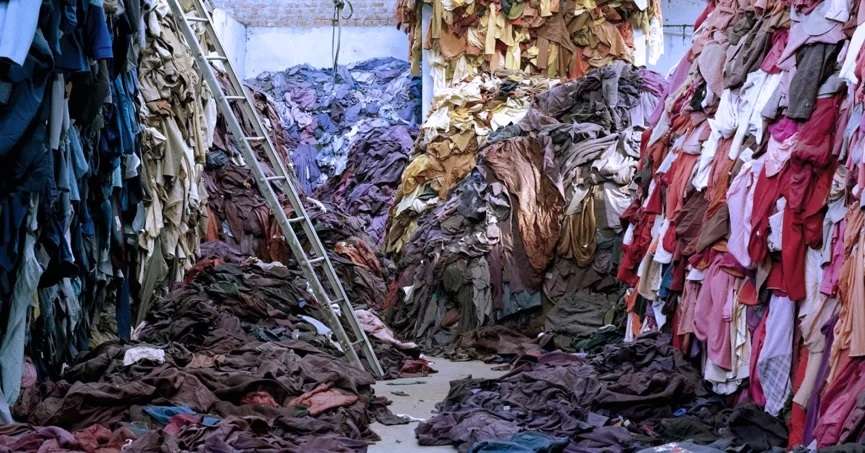Image Courtesy – The Next Cartel
In 2023, the Global Footprint Network, a US-based environmental NGO, reports that the world has surpassed its sustainable biological capacity. To sustain current consumption levels, humanity now requires the resources equivalent to 1.7 planets.
What are we looking at?
Annually, 300 million tonnes of plastic are manufactured, with a mere 9% undergoing recycling due to the widespread neglect of effective recycling practices. Nearly half of this plastic volume comprises single-use items, utilized briefly before being discarded.
As highlighted in a report by the Food and Agriculture Organization of the United Nations, livestock production, encompassing beef, chicken, cows, and pork, stands as a prominent contributor to a critical global environmental challenge. This industry is accountable for 18% of greenhouse gas emissions and a staggering 70% of Amazon deforestation.
Another escalating concern is the exponential growth of e-waste, which emerged as the world’s fastest-growing waste stream. In 2019 alone, a staggering 53.6 million tonnes of electronic equipment waste were generated globally.
What does the global North not understand?
Viola Wohlgemuth, a circular economy and toxics campaigner at Greenpeace Germany, emphasized a pervasive issue in Germany and the global north: a failure to grasp the finite nature of resources. Citing data from the World Resources Institute, Wohlgemuth highlighted that 90% of biodiversity loss stems from “resource exploitation and conversion to products,” contributing to 50% of global greenhouse gas emissions.
Despite the glaring reality of an “enormous resource crisis,” countries like Germany, previously hailed as a climate champion, have not internalized this lesson, according to Wohlgemuth. Berlin-based climate activist Tadzio Müller pointed out that Germany’s eco-friendly reputation is more a product of historic social movements than effective governmental strategies. He referenced the anti-nuclear movement, the pioneering efforts of small and medium-sized renewable energy companies, and recent protests by youth demanding a fossil fuel exit.
However, Müller stressed the need for a fundamental shift in the guiding principle of endless economic growth embedded in German policy. To effectively address climate change and the severe issue of biodiversity loss linked to overconsumption, he argued that the concept of “green growth” or “electric car capitalism” must be reconsidered. Such models, he contends, perpetuate massive resource consumption, especially for minerals and rare earths.
The most recent Innocenti Report Card, released in 2022 by the UNICEF Office of Research – Innocenti, paints a concerning picture of the global landscape, indicating that a majority of affluent nations are contributing to unhealthy, hazardous, and detrimental conditions for children worldwide.
Titled “Innocenti Report Card 17: Places and Spaces,” the report assesses the performance of 39 countries within the Organisation for Economic Co-operation and Development (OECD) and the European Union (EU) in fostering healthy environments for children. Examining various indicators such as exposure to harmful pollutants, access to safe spaces, and countries’ roles in climate change and resource consumption, the report reveals alarming trends.
The report highlights that if the entire world were to adopt the resource consumption patterns of OECD and EU countries, it would necessitate the equivalent of 3.3 Earths to sustain such levels. Furthermore, if global consumption mirrored that of countries like Canada, Luxembourg, and the United States, a staggering five Earths would be requisite.
Despite Spain, Ireland, and Portugal ranking favorably, the report underscores a universal failure among all OECD and EU nations to provide healthy environments for children across the examined indicators. Notably, affluent countries such as Australia, Belgium, Canada, and the United States exhibit widespread adverse effects on global environments, including high CO2 emissions, e-waste generation, and overall resource consumption per capita. Paradoxically, these nations also rank poorly in ensuring a healthy environment for children within their borders. In contrast, less affluent OECD and EU countries in Latin America and Europe demonstrate a significantly lower impact on the global stage.
Impact Assessment on Global South
Figures show that the global North would care very little about the development and safety of the global south, even when it comes to children.
The ramifications of overconsumption on impoverished communities are intricate, with one of the foremost consequences being the exploitation of labor in developing nations. Advocates argue that, for nations participating in the global market, maintaining a certain standard of dignity and human rights for workers is imperative. However, the production of numerous consumer goods occurs in countries where laborers receive inadequate pay, and labor laws or regulations are notably lenient, fostering a climate of worker exploitation.
In 2016, the Asian Development Bank (ADB) conducted an analysis of working conditions in Asian countries, revealing that impoverished nations necessitate longer work hours compared to their wealthier counterparts. The working conditions, often mirroring the economic and social conditions of the country, contribute to issues like malnutrition, poverty, and low education levels.
The Rana Plaza Collapse in Bangladesh in 2013 serves as a poignant example of inadequate labor laws and working conditions, resulting in the tragic death of 1,100 factory workers. This event has prompted various organizations and governmental bodies to prioritize safety concerns and cease overlooking such critical issues.
Child labor stands out as another substantial consequence of overconsumption on impoverished communities in developing countries. UNICEF’s 2020 report on Children’s Rights in the Footwear and Garment Supply Chain highlights the prevalence of child labor in the garment and footwear industry. The report discloses that child laborers in this sector endure hazardous and dangerous conditions similar to their adult counterparts.
In Vietnam, approximately 18% of factories do not adhere to child labor laws, permitting the employment of individuals under 18 years old. The report further underscores that deeper into the supply chain, there is less scrutiny and auditing of working conditions, creating an environment where children can work without the risk of detection by authorities.
The substantial presence of child laborers in the textile and garment sectors can be attributed in part to globalization and the demands of global consumers, pressuring factories to meet high production levels.
What can be done?
Initiatives aimed at reducing carbon emissions often prioritize addressing the challenges faced by the world’s poorest, including issues related to food and energy security, and the potential rise in emissions due to anticipated growth in population, income, and consumption.
Nevertheless, there is a growing recognition that additional policies are essential to target the opposite end of the social spectrum: the super-rich. While some countries are beginning to move in this direction, progress is notably slow due to the complexities involved in addressing the influential classes. Spain’s Ministry of Ecological Transition, for instance, is proposing to the European Union that individuals with assets exceeding 100 million euros should be subject to a “climate tax,” enhancing the country’s ability to address the challenges posed by climate change.
If the mega-rich were to contribute approximately 2% of their wealth through a climate tax, this could generate an estimated 300 billion globally to combat climate change. Scientifically supported, this proposal is among the measures Spain aims to explore during its upcoming EU presidency.
Simultaneously, the World Inequality Lab is not merely appealing to ethical considerations. Grounded in scientific knowledge, it seeks to confront the most profound challenge humanity has ever faced: climate change and the socio-economic model that has been instrumental in its emergence.
The ‘eco-friendly’ initiative and late industrialization
Developing countries face economic challenges that hinder their ability to transition rapidly to low-carbon economies. Many of these nations are still grappling with poverty, inadequate infrastructure, and limited access to technology. In contrast, developed nations have enjoyed the economic benefits of industrialization for centuries, enabling them to invest in cleaner technologies and develop the capacity to meet carbon goals more effectively.
The transfer of environmentally friendly technologies from developed to developing countries is crucial for the latter to meet carbon goals. However, the process of technology transfer has been slow and insufficient. Developed nations often retain proprietary technologies, making them inaccessible to developing countries. Additionally, building the necessary capacity to implement and manage these technologies requires significant investment, a luxury that many developing countries cannot afford without international assistance.
Developing countries often bear the brunt of the impacts of climate change, such as rising sea levels, extreme weather events, and disruptions to agriculture. Allocating resources to adaptation measures further strains their ability to meet stringent carbon goals. Meanwhile, developed nations, having already industrialized and benefited from carbon-intensive practices, are better equipped to adapt to these challenges.
Global emission standards often fail to account for the historical contributions of developed countries. Setting uniform emission reduction targets disregards the fact that developed nations have already utilized their carbon budget for economic growth. The burden of meeting stringent targets disproportionately falls on developing nations, limiting their potential for economic development.
In conclusion, the expectation for developing countries to maintain stringent carbon goals while many developed nations have already industrialized is fundamentally unfair. Historical responsibility, economic disparities, inadequate technology transfer, and the challenges of adaptation underscore the need for a more equitable approach to global climate action. Addressing these issues is crucial to fostering a collaborative and just framework that recognizes the shared responsibility of all nations in the fight against climate change.
Link 01 – https://www.unicef.org/press-releases/over-consumption-worlds-richest-countries-destroying-childrens-environments-globally






